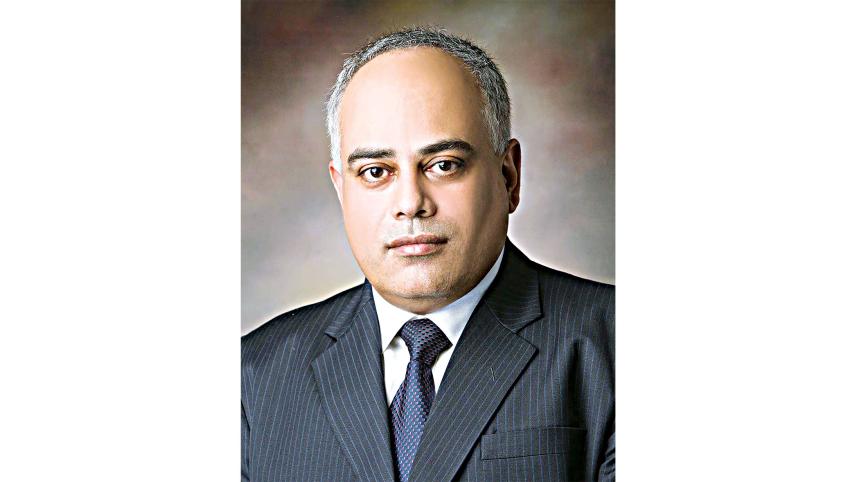Leadership agenda beyond digital

Most of the large organisations worldwide are going through certain technology-led digital transformations.
Large and reputed organisations in Bangladesh too have embarked on such technology-led transformations, such as implementation of enterprise resource planning (ERP) tools, cloud-based packaged solutions such as sales force automation, and business intelligence solutions. Such technology-led transformations help these organisations improve efficiency, reduce cost, and upgrade their process adherence standards.
However, technology-led transformations do not result in digital transformation of an organisation. Quite often, tech and digital are used interchangeably to mean a certain technology adoption or a technology-led transformation.
As organisations in Bangladesh are rapidly transforming themselves with new products and services, and new capabilities, the leadership agenda should be reset with this new paradigm of perpetual disruptions
However, digital transformation means quite a few other elements beyond technology. And to realise maximum benefits from the digital transformation journey, business leaders need to focus their attention on the journey beyond digitalisation.
In an environment of frequent disruptions, the organisations distinguish themselves as transformative with respect to others by focusing on a wide range of transformative elements, starting from reimagining their position in this world.
Redefining their competitive advantage and recalibrating their purpose help these organisations look beyond their present set of products and services, and rearticulate their value creation opportunities for their stakeholders.
For these organisations, being digital consisted of the journey of converting their existing products and services to the digitalised ones and converting their brick-and-mortar business processes to a set of digitalised business processes.
After transforming into digital, now they must look towards the journey beyond digital. That's where truly transformative business leaders define the journey of their organisations.
The second element of the leadership agenda would be to build the value creating ecosystem proactively. Transformative organisations must realise that they must leverage ecosystems of suppliers and innovators to continuously enhance the value of their products and services, and stay relevant among their stakeholders, including customers.
Ecosystems help the organisations focus on their most important capabilities and leverage the other capabilities from other organisations that are good at those. Ecosystems help in attaining scale, agility and flexibility.
For example, ride sharing apps tend to focus on their most important capabilities on technology development and customer experience delivery. At the same time, they build their ecosystem of vehicle owners and drivers who mobilise resources to help create the virtual fleet of vehicles.
The third aspect that business leaders must focus on is to understand their customers better. Once the unique position gets well-articulated, leaders must take proactive measures to create insights on the organisation's customers and their fast-changing behaviours amid disruptions.
Having strong insights about customers helps organisations innovate faster and create meaningful values for their customers. A transformative organisation keeps itself relevant by harnessing strong insights about its customers beyond their journey of digitalisation.
The only way an organisation can develop and enhance its insights is by continuously engaging with them. In a brick-and-mortar business environment, meticulous business leaders observe their customers thoroughly and try to understand what kind of needs are driving their behaviours, within the store or outside.
In the digital realm of the same business, the leaders rely on the digitalised techniques such as A/B testing to understand customers' behaviours and develop insights about them.
In fact, successful leaders rely more on the digital techniques and data to create insights instead of their gut-feeling and make decisions.
The best way to execute a transformation successfully beyond digitalisation is to adopt a citizen-led approach. An ideal citizen-led approach of an organisation empowers its employees to continuously innovate and contribute to creating values for its stakeholders.
A citizen-led approach helps employees to identify themselves more with the purpose of the organisation and align their efforts towards achieving organisational goals.
Having said that, a citizen-led approach is not suggestive to run an organisation without business leaders as they are an integral part in championing such citizen-led approach and to lead by example.
Finally, business leaders must disrupt their own leadership style. Leadership is no longer a top-down approach when an organisation looks beyond digital.
Modern leaders must demonstrate their capabilities in developing strategy for the business as well as their ability to execute it successfully. They must be tech-savvy, should be as comfortable as their teams in navigating through the digital realm, including social media and metaverse.
At the same time, they must possess deeply humane skills to understand their stakeholders, and be adept at making adjustments without compromising with their integrity and the core organisational values.
Leadership agenda of a truly transformative organisation should set the right tone at the top and enable the teams to take risks in building complex digital capabilities for the new world.
At the same time, the tone at the top must be right. Leaders must demonstrate that they understand data produced out of the digital realm of the business and society, and they make decisions based on data.
They should also define certain path-breaking journeys such as their goals towards net zero. Only then they will be able to proactively encourage their people to behave in the same way.
As organisations in Bangladesh are rapidly transforming themselves with new products and services, and new capabilities, the leadership agenda should be reset with this new paradigm of perpetual disruptions. It's also the time for the business leaders to reinvent themselves.
The author is a partner at PwC. Views are personal.



 For all latest news, follow The Daily Star's Google News channel.
For all latest news, follow The Daily Star's Google News channel.
Comments